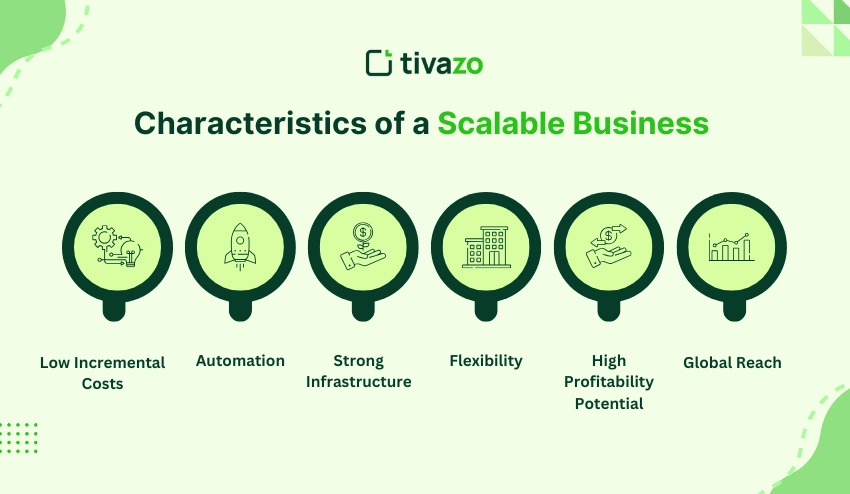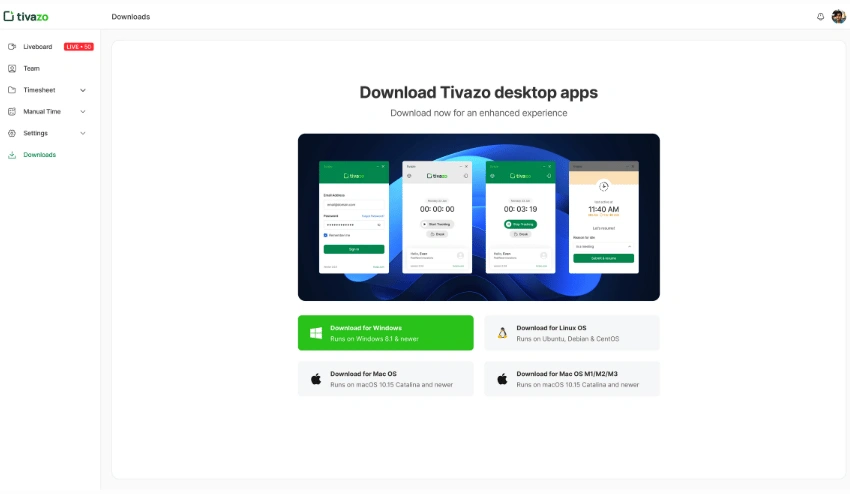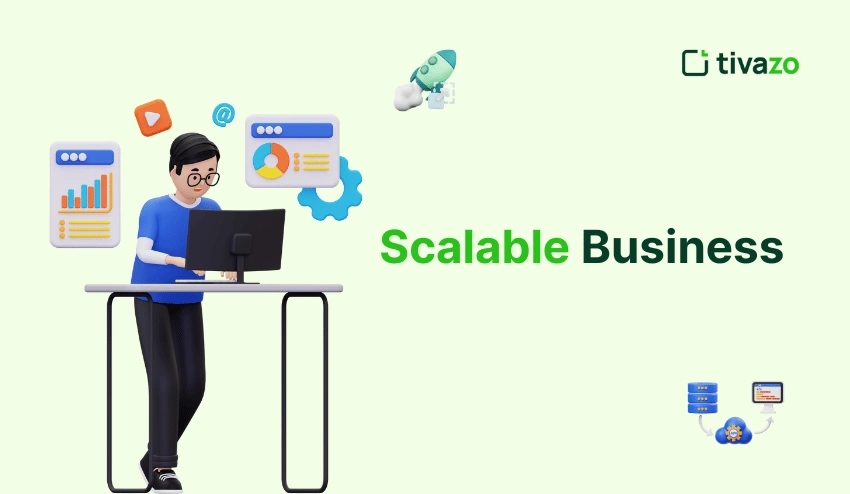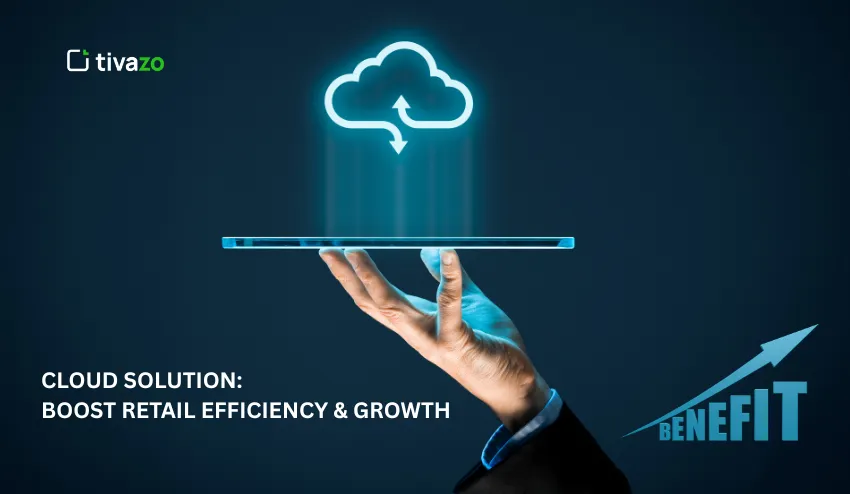In the modern competitive market, growth is not sufficient; rather, businesses require the appropriate systems to support growth. Scalable business solutions come in at this point. They enable businesses to grow without interruption, reach more customers, and increase profitability without straining resources and compromising efficiency.
Unlike the traditional models, which fail to cope with an increased demand, scalable business solutions provide organizations with the ability to adjust swiftly to the changes and the infrastructure to succeed in the long-term perspective. These are the solutions, whether it is automation, cloud technology, streamlined workflow, etc., that form the root of sustainable growth.
This paper discusses the importance of scalable business solutions to long-term success, why it is more important now than ever before, and how you can achieve it. When you learn the rules of scalability, you will be in a better position to build a business that not only expands but also persists in the dynamic economy.
What is a Scalable Business?
A scalable business is one that grows revenue and customer base without major cost increases, supported by scalable business solutions like automation, cloud systems, and CRM tools. An example is a start-up in New York or a digital agency in London that is able to grow internationally through the use of technology-driven solutions. Scalable businesses are able to respond quickly to demand but still grow and remain sustainable over the long term because they streamline processes and eliminate inefficiencies.
How to Start a Scalable Business?
To start a scalable business, you need a growth-ready model supported by scalable business solutions like cloud platforms, automation, and digital marketing tools. Take the example of an online retail store in Los Angeles or a software as a service company in Berlin; they can reach out to a global audience with little overhead cost by the use of technology and efficient systems. The trick is to establish efficient processes at an early stage, prove there is a market need, and make use of tools that can grow with your business.
What Are The Key Characteristics Of a Scalable Business?
Scalable businesses are built to expand without a proportionate increase in costs. The introduction of scalable business solutions will help these companies to serve more customers without compromising quality and profitability.

1. Low Incremental Costs
Low incremental costs are one of the primary characteristics of a scalable business. With solutions such as an automated billing system or cloud services, companies can expand the number of customers without incurring major costs.
The low incremental costs enable the business, whether it is in a tech hub, such as San Francisco or London, to expand operations worldwide. Scalable business solutions make processes more efficient, such that when more clients are added, more resources are not necessarily needed.
2. Automation
The use of automation is one of the main features of a scalable business. Repetitive tasks can be managed with the help of scalable business solutions like workflow automation, chatbots, or AI tools, and handled efficiently without human involvement.
Automation assists businesses in minimizing errors and saving time so that the teams can concentrate on strategic growth. The business solutions in cities such as Berlin or New York can scale by using scalable solutions in business without building a large workforce.
3. Strong Infrastructure
A robust infrastructure is imperative to scalability. Companies that embrace scalable business solutions such as cloud hosting, integrated software, and robust databases will be able to operate without any hitch in high-demand situations.
Investments in infrastructure enable scalable businesses to support traffic or sales surges without any problems. Companies with the appropriate scalable business solutions are able to expand internationally and continue to perform at the same level.
4. Flexibility
Another attribute of a scalable business is flexibility. With scalable business solutions, firms have the ability to adapt to market trends, seasonality, or technology changes very quickly.
Flexible operations imply that businesses can scale resources or pivot without the downtime involved. In any competitive market globally, scalable business solutions allow organizations to be flexible and responsive.
5. High Profitability Potential
Scalable businesses are seeking to grow their revenues faster than the growth of their costs. Scalable business solutions can be used to optimize operations in order to make sure that as profits increase, expenses do not increase at the same rate.
Companies can use these solutions to grow sustainably, whether it is a startup in Singapore or an established company in Toronto. Profitability will then be high enough to enable scalable businesses to reinvest in innovation and expansion.
6. Global Reach
Lastly, global reach is usually a possibility in scalable businesses. Scalable business solutions such as e-commerce systems, cloud, and digital marketing tools enable businesses to reach international customers without having massive physical infrastructure.
The solutions make it affordable and viable to expand globally. Businesses that adopt scalable business solutions have the advantage of accessing more than one market, and they are able to maintain an efficient and controllable operation.
A scalable business is successful due to its low costs, automation, good infrastructure, flexibility, profitability, and global presence. The effective use of scalable business solutions is the gateway to sustainable growth and long-term success.
What is the difference between a small business and a scalable business?
| Feature | Small Business | Scalable Business |
| Growth Potential | Limited by resources and owner capacity | High growth potential using scalable business solutions |
| Revenue vs. Cost | Revenue growth is often tied to increased costs | Revenue grows faster than costs due to scalable business solutions |
| Processes | Manual and less structured | Automated and optimized through scalable business solutions |
| Market Reach | Usually local or regional | Can expand nationally or globally using technology and scalable business solutions |
| Flexibility | Harder to adapt to sudden demand or trends | Flexible and adaptable with scalable business solutions |
| Resource Dependency | Depends heavily on the owner or key staff | Operates efficiently with systems and scalable business solutions |
| Long-Term Success | Risk of stagnation or failure if demand increases | Designed for sustainable growth with scalable business solutions |
Why Do 90% Of Small Businesses Fail?
Nearly 49.4% of small businesses fail within the first five years due to challenges in managing growth, cash flow, and operational efficiency. Others use inefficient procedures or do not have the right tools and thus cannot scale efficiently. Failing to embrace scalable business solutions, these businesses simply cannot cope with rising demand, cannot streamline the workflows, and cannot remain profitable, which results in stagnation or closure.
There is a huge difference in the long-term survival of small businesses that implement scalable business solutions early in their business. Automation, cloud-based systems, and digital tools enable businesses to use resources more efficiently, minimize expenses, and become more flexible in the face of market changes. With the help of these solutions, small businesses will be able to compete with large businesses, grow sustainably, and not become a part of the 90% statistic.
How To Determine If A Business Is Scalable?
The scalability of businesses can be determined by analyzing whether a business can expand its revenue and customer base without the same proportionate increase in costs. Companies that adopt scalable business solutions-such as automation, cloud systems, digital tools- can scale up in a cost-effective manner and meet the growing demand without lowering quality or performance.
Some of the main aspects to consider when checking scalability are:
Key factors to check for scalability include:
1. Revenue vs. Cost Growth
A scalable business increases revenue at a higher rate than it increases expenses. Application of scalable business solutions means that operations will not be disrupted as the demand rises among customers
2. Process Efficiency
Wherever possible, processes must be repeatable, standardized, and automated. Scalable business solutions can be used to streamline processes and eliminate the need to use manual labor.
3. Market Potential
The company ought to be able to grow either regionally, nationally, or internationally. Digital solutions and cloud-based, scalable business tools allow a wider market penetration.
4. Adaptability
A scalable business is able to react to demand changes or market trends rapidly. Scalable business solutions are flexible as they offer real-time analytics, automatic systems, and resource optimization.
By considering these factors and implementing scalable business solutions, entrepreneurs may understand whether their business can be successfully developed and have a long-term future.
Example of Scalable Businesses
The key to the success of many businesses lies in the adoption of scalable business solutions that enable them to expand without substantial growth in their expenses. A good example is Tivazo, a SaaS tool that helps make the collaboration of teams and time tracking more efficient.
Tivazo: A SaaS Success Story
Tivazo uses cloud technology, automation, and integrated tools to support thousands of users worldwide without the requirement of a large physical infrastructure. The scalable business solutions allow Tivazo to acquire new clients, upgrade features, and meet any surge in demand without any complications.

Why Tivazo is Scalable
The platform has the capability of automating workflows, storing data on the cloud, and offering subscription plans that are flexible and adapt as the business grows. This illustrates the scalability of business solutions that allow SaaS products such as Tivazo to grow without compromising on the quality of service delivery.
Learning from the example of Tivazo, startups and digital enterprises can learn how to use technology and scalable business solutions to generate sustainable long-term growth.
Conclusion
The introduction of scalable business solutions will allow businesses to expand efficiently, optimize their operations, and react swiftly to the changing market demands. Companies can use automation, cloud technology, and efficient workflows to lower costs, increase the number of served customers, and reach sustainable growth. Companies that adopt these solutions place themselves in a position to achieve long-term success, greater profitability, and competitive advantage in the current dynamic market.




